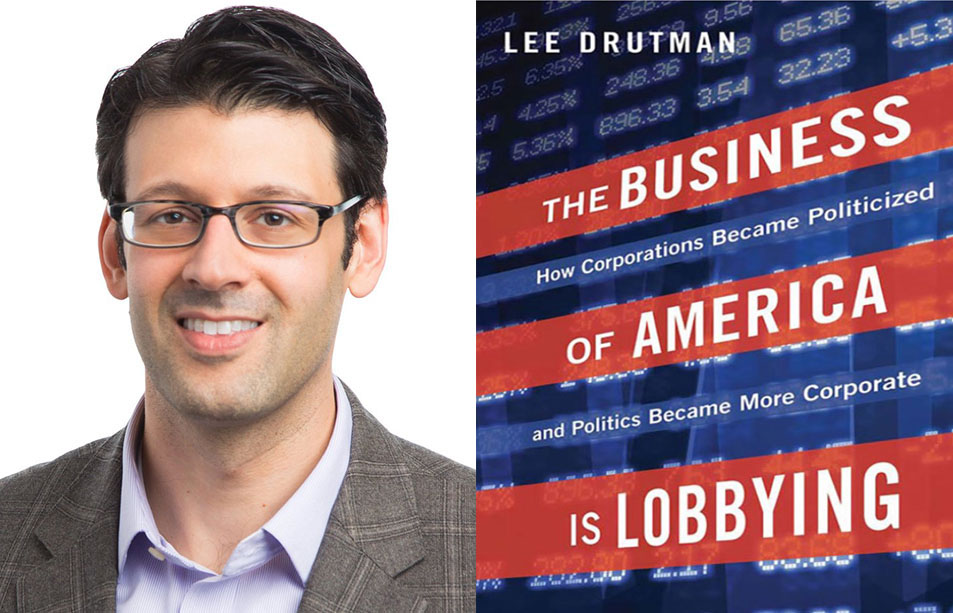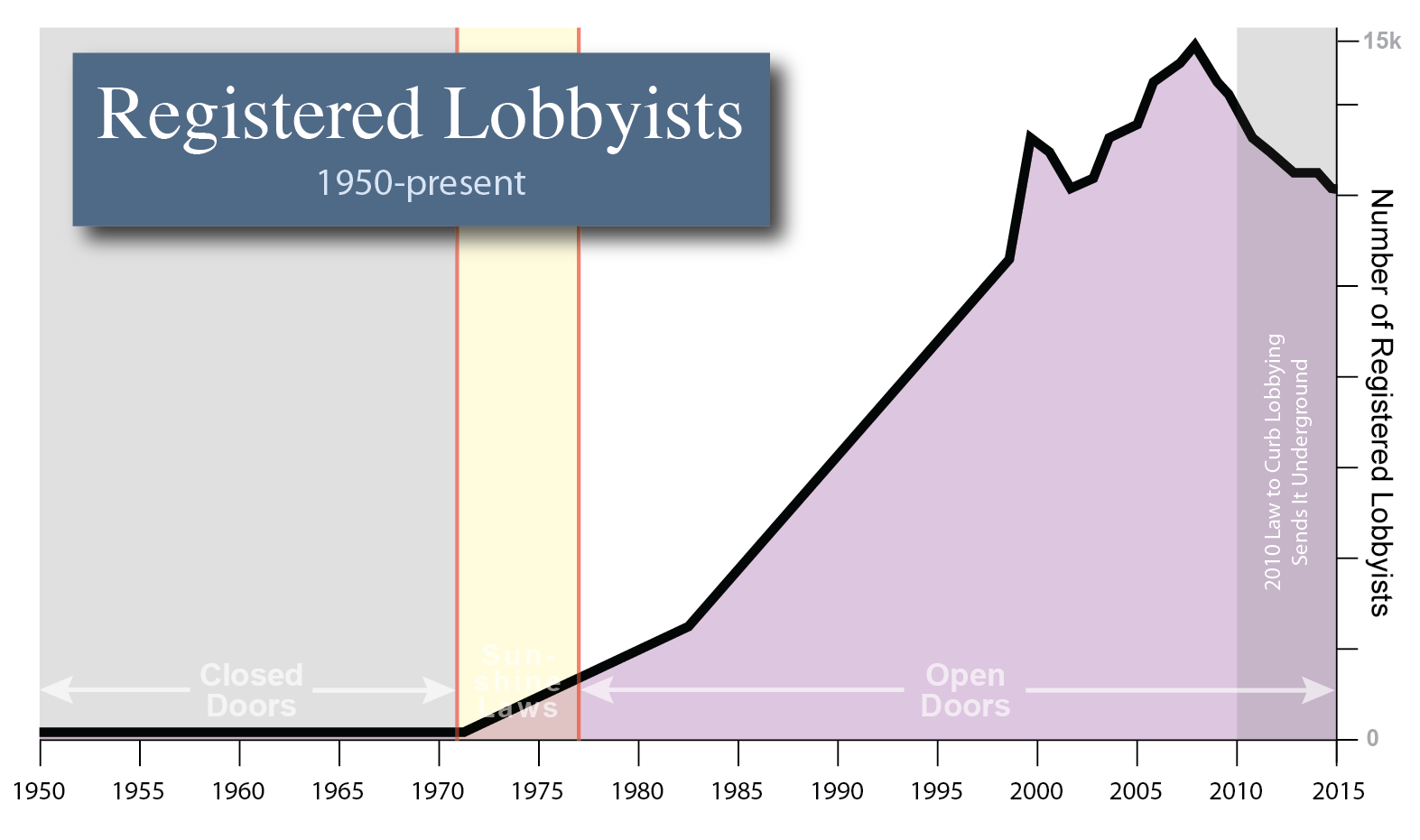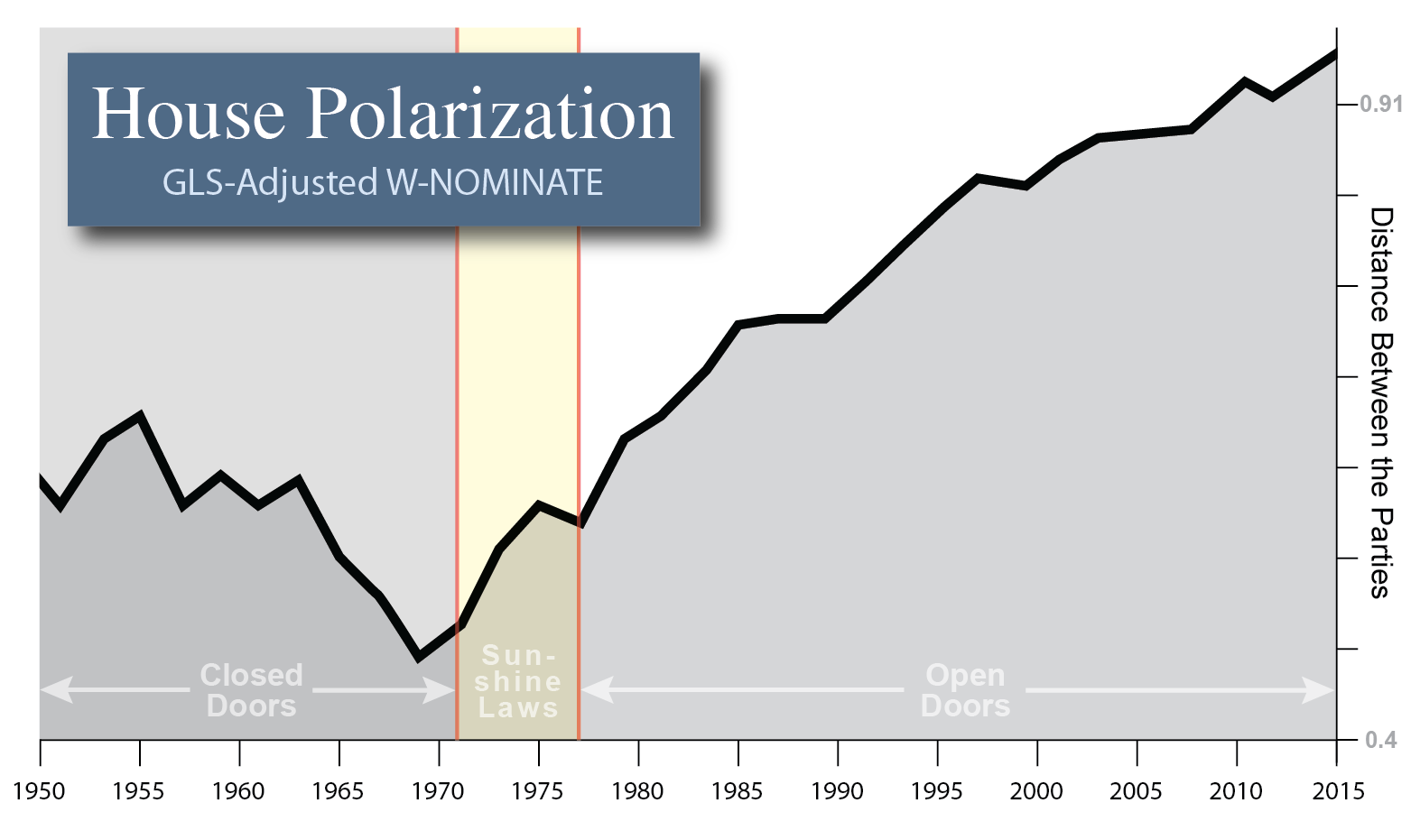Lee Drutman and the Selling of Congressional Transparency
And other congressional moves toward transparency
Despite years of contact, Lee Drutman of New America and the Sunlight Foundation continues to support policies that overwhelmingly benefit billionaires, oil companies and their lobbyists. His work is based on tricked up math and denies the powerful relationship between congressional transparency, corruption and hyper-partisanship.
By Conner Davidson & James D’Angelo– October 10, 2020
Note: We chose to run this page on October 10, 2020 only after attempting to contact Mr. Drutman dozens of times to discuss this topic. We have reached out by email, by twitter, and via a $50,000 ad in 2018 in the Washington Post. While Mr. Drutman is unique in his zealous support of congressional transaprency and the 1970 LRA, he is supported by others, most notably Daniel Schuman and James Wallner. To date, none of them, have responded with a single piece of evidence to support their claims. In one email chain after a request for data Daniel Schuman threatened to bring in the police. In 2019, in a conference on transparency on Capitol Hill Schuman ripped the microphone out of the hands of one of our speakers who was making a similar request for data.
Congressional reforms, particularly the Legislative Reorganization Act of 1970, reduced the power of committee chairs and opened Washington to a barrage of interest group activists, lobbyists, and campaign funders.Benjamin C. Waterhouse 2014
Lobbying America
The Corruption Peddler?
Lee Drutman’s one-man-crusade to support the LRA and the benefits of congressional transparency.

Lee Drutman, the author of a flawed book on lobbying

Lee Drutman, the author of a flawed book on lobbying
The only academic positively supporting the 1970 LRA is a scholar (and ex-Sunlight Foundation lobbyist) named Lee Drutman. In a recent New York Times article written by him and Kevin Kosar, Drutman makes broad statements about the benefits of the 1970s reforms – yet somehow refuses to cite data or sources.
So our nation’s legislators enacted the Legislative Reorganization Act of 1970, and committee reforms soon after. These reforms … enabled Congress to flourish as an institution of bipartisan legislative creativity and executive oversight, where many more members got to put their talents to work.Lee Drutman & Kevin Kosar 2018
The Other Biggest Problem in Washington
The are two explanations for Drutman’s passion on this issue. The first is rather insidious. He worked as a paid lobbyist for the Sunlight Foundation while writing his book on lobbying, something which he acknowledges in the preface to his book. The second is that he and Kosar have energetically come up with alternative ‘fixes’ and ideas for Congress that they are hoping to ’sell.’ Thus, the notion that the 1970 LRA might be a failed experiment does not fit their narrative or their career trajectories. Finally, and perhaps most importantly, scholars hate to be wrong. So notions of transparency as an important problem clashes directly with Drutman’s most important work, which strangely, and inexplicably, overlooks the 1970 reforms altogether.

Rise in Lobbying & 1970 Sunshine Reforms

Rise in Lobbying & 1970 Sunshine Reforms
In his work, The Business of America is Lobbying, he presents a new (and as he claims proven) theory for why lobbying surges in the 1970s and remains powerful today. Yet while Drutman digs deep into the history of lobbying to introduce his ideas in his book, he fails to mention the simple idea that before 1971 lobbyists were relegated to the lobby, outside of the closed committee doors. It is hard to imagine that once they were invited into markup sessions and had access to all legislative votes that their lives wouldn’t have changed substantially, but to Drutman, this sunshine is a non-issue.
His oversight of the 1970 LRA is especially peculiar as many of the scholars he claims as confidants in his acknowledgments have made strong public statements about their concerns with transparency. And, one wonders how Drutman could conduct such elaborate regressions to support his ‘sticky’ theory of lobbying, while leaving out the most cited confounding variable - transparency.
His actions are even more peculiar given that a year before he published his book, one of his confidants, Benjamin Waterhouse published a popular book on lobbying, citing the 1970 LRA as a principal cause of the explosion in lobbying in the 1970s. Waterhouse notes this explicitly in Chapter 2 and a quote of his work is at the top of this page. So while Drutman references Waterhouse’s book numerous times in his work, he never lets on to having any familiarity with these ideas. Worse, Drutman does not capitulate, despite our numerous queries for him to present evidence to build his case. He has presented nothing. Instead he has now pivoted from lobbying to partisanship, publishing his new book "The Doom Loop." Yet that book suffers from the same problem. He does his history on partisanship, yet ignores one of the most most cited causes for the division - transparency. Beginning with James Madison, pundits, politicos and scholars have, for centuries, spoken about the way open door deliberations drive partisanship. But Drutman continues to ignore their concerns.

Rise in Polarization & 1970 Sunshine Reforms

Rise in Polarization & 1970 Sunshine Reforms

